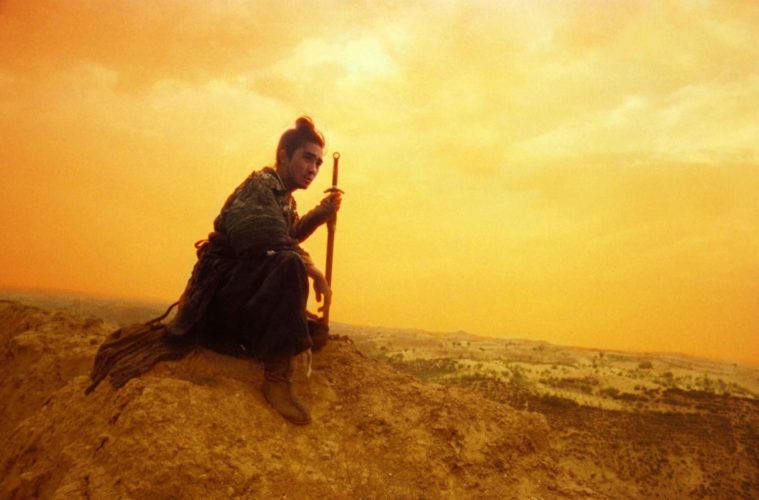
Dailies is a round-up of essential film writing, news bits, and other highlights from across the Internet. If you’d like to submit a piece for consideration, get in touch with us in the comments below or on Twitter at @TheFilmStage.
TSPDT’s 1,000 Greatest Films has been updated for this year with The Emperor’s Naked Army Marches On (1981), Harlan County, U.S.A. (1976), Ashes of Time (1994), Empire (1964), and Ulysses’ Gaze (1995) earning spots on the list.
Watch The Living Room, a new film by This is England director Shane Meadows (via The Playlist):
The Dissolve‘s Keith Phipps on the long shadow of Fritz Lang‘s M:
Fritz Lang’s 1931 feature M ends as memorably as a movie can, with the police, at the last possible moment, breaking up the underworld kangaroo court assembled to determine the fate of child murderer Hans Beckert. But it’s hardly a definitive ending. Lang shows Beckert (Peter Lorre) pleading for mercy before the police arrive, but then leaves his fate undetermined. Offscreen, he’s apparently rescued from the mob screaming for his death, taken into custody, and sent to trial. But while the film shows the court preparing to declare its verdict, it never lets that verdict be heard. Instead, Lang cuts to a group of weeping mothers, one of whom says, “This will not bring our children back. One has to keep closer watch over the children.” Justice has been done, and one man responsible for monstrous acts has been apprehended, but there remains much to fear in the world. In that moment, the story of one particular murderer in one corner of the world takes on universal implications.
Watch Richard Gere discuss his career in a recent 35-minute conversation:
AV Club‘s Ignatiy Vishnevetsky on how at 100 years old, Birth Of A Nation remains a troubling contradiction:
Problematic, contradictory art is inherently compelling, because it has to be navigated and sorted, and because it tends to produce these x-but-also-y mysteries that can’t be completely solved, but instead just have to be accepted for what they are. As far as problematic art in America is concerned, Birth Of A Nation is the closest thing there is to a dictionary definition example, mostly because American culture has had a really hard time letting it go, or has turned not letting it go into a critical art in and of itself. Birth Of A Nation is the movie where many of the values associated with American filmmaking—complex intercutting, massed crowds of extras contrasted with close-ups of actors, carefully edited suspense and chase scenes—get their first really clear, fully formed expression. It’s also unquestionably white supremacist and racist. It represents a key point in the history of American art, and is animated by some of the ugliest rhetoric America ever produced.
After reading our article on it, watch a video essay on Lucrecia Martel’s La Ciénaga:
At Slate, read how Roger Ebert saved one writer’s life:
Sometimes I wonder what will become of me. I want to be a lot of things, but I’m too embarrassed to say any of it, so I keep it to myself. Sometimes it’s to be a writer. But sometimes I change my mind. Maybe I’ll be a movie director. Sometimes I want to be a rock star, and I play air guitar in my room until somebody knocks and barges in and I pretend I was doing push-ups. I keep a list of my favorite authors. A lot of them teach in colleges around the country, and I send them letters there, asking them if they need an assistant or an intern. When I wander around at night, scuffing my old shoes on the streets, I imagine one of them saying yes and taking me on to work with him in a small house together. Maybe a writer who feels forgotten and needs somebody to believe in him. But nobody writes me back.
Watch a video essay connecting Five Easy Pieces and Inside Llewyn Davis:

